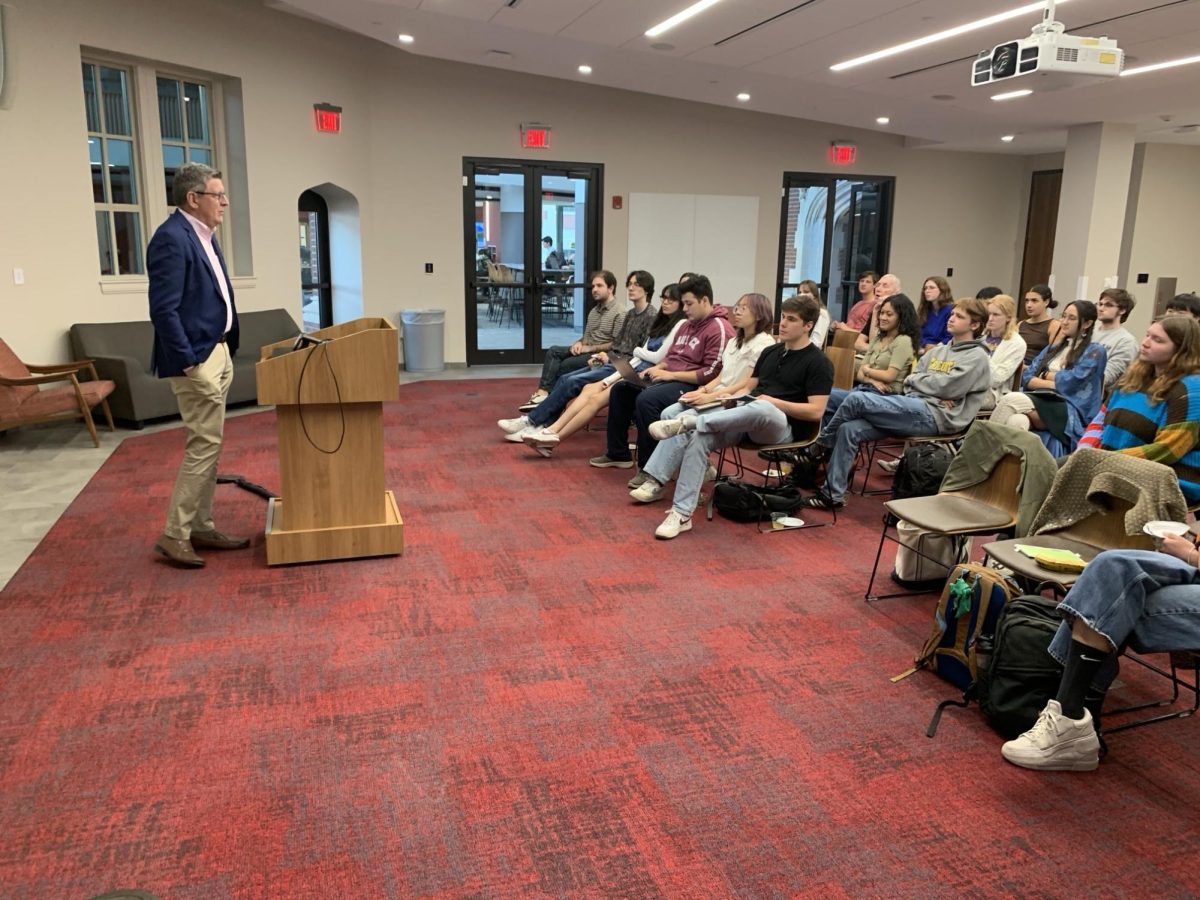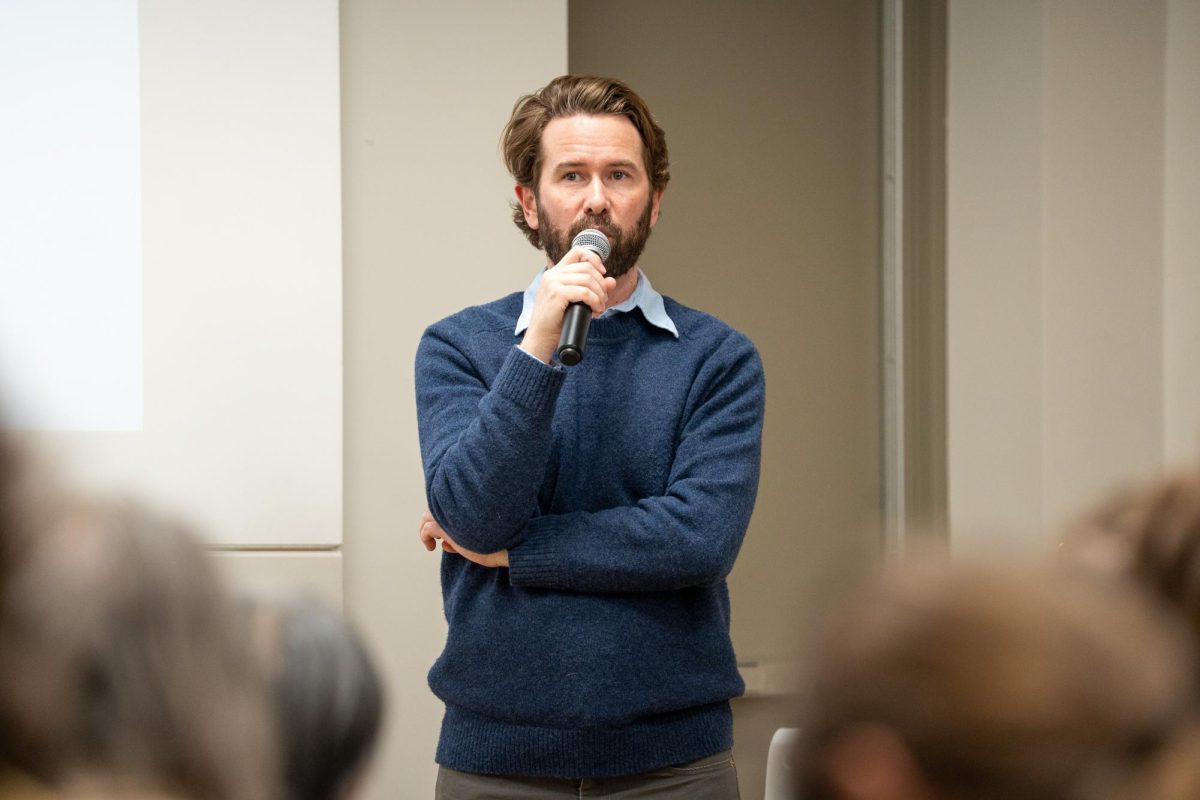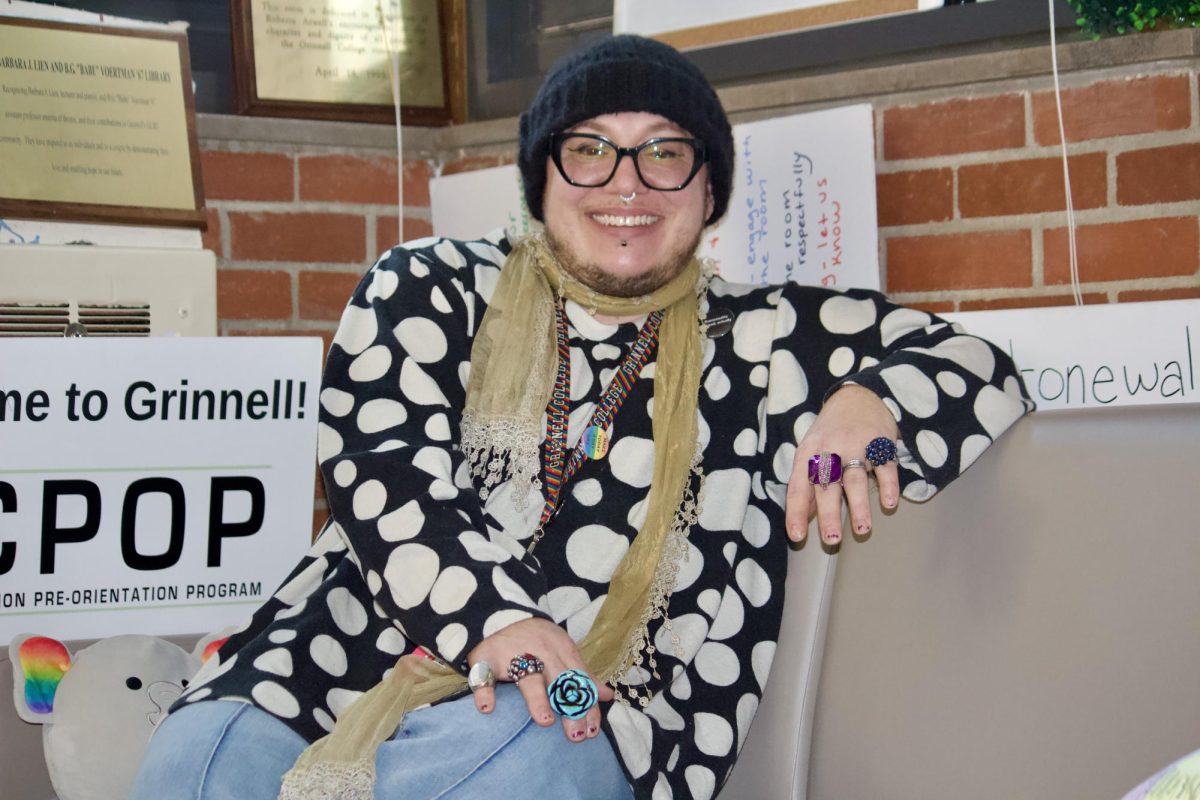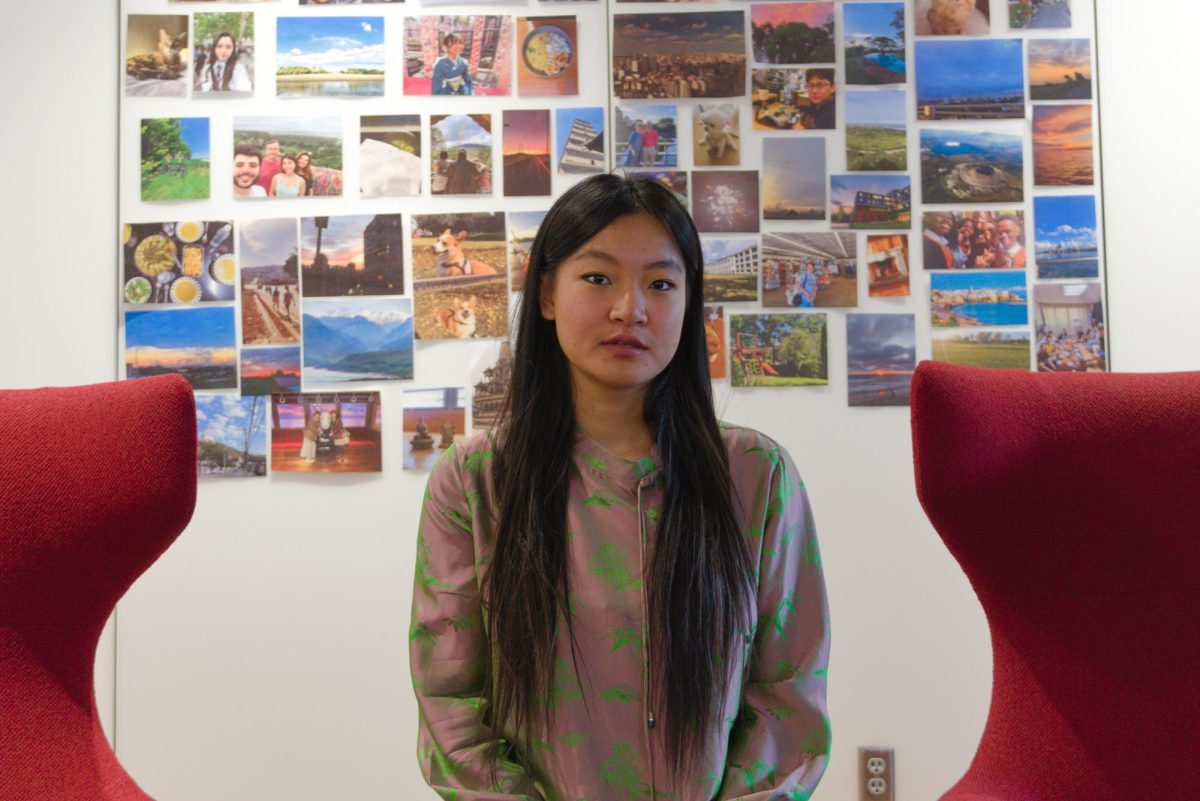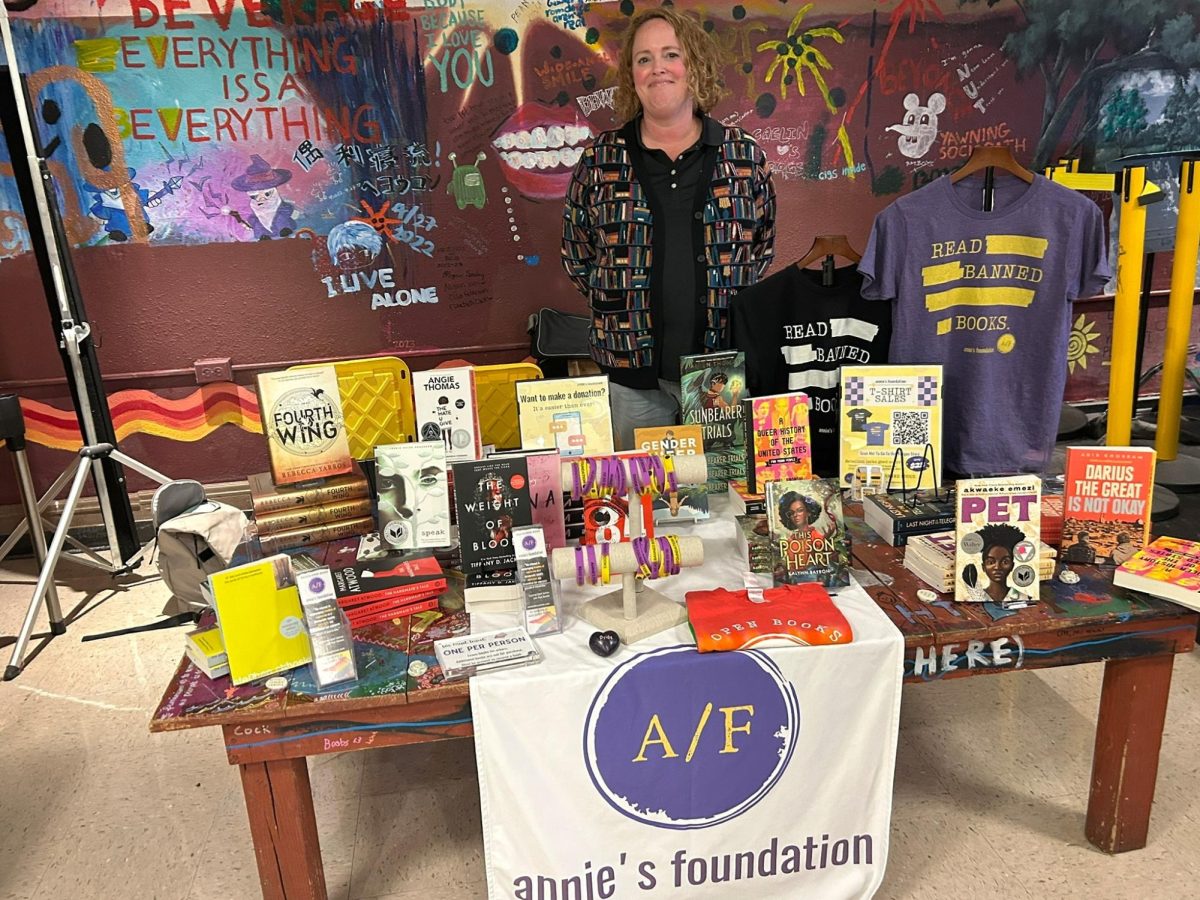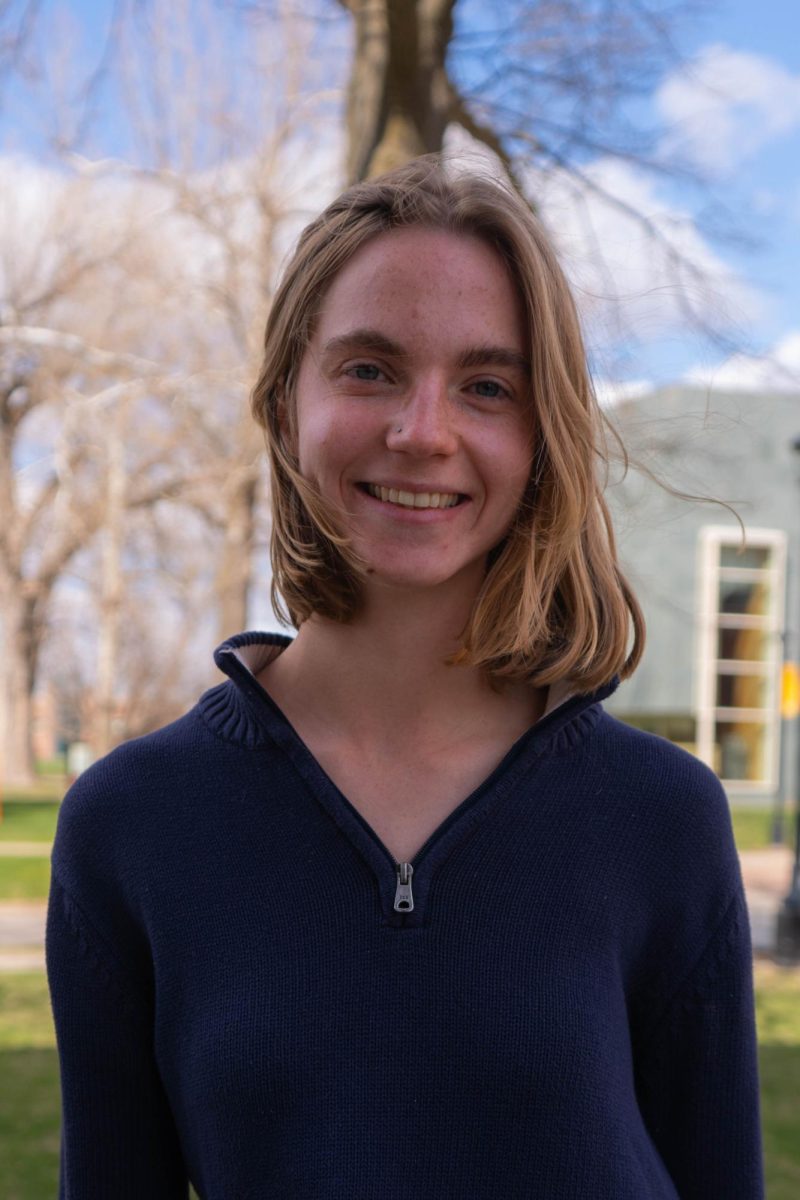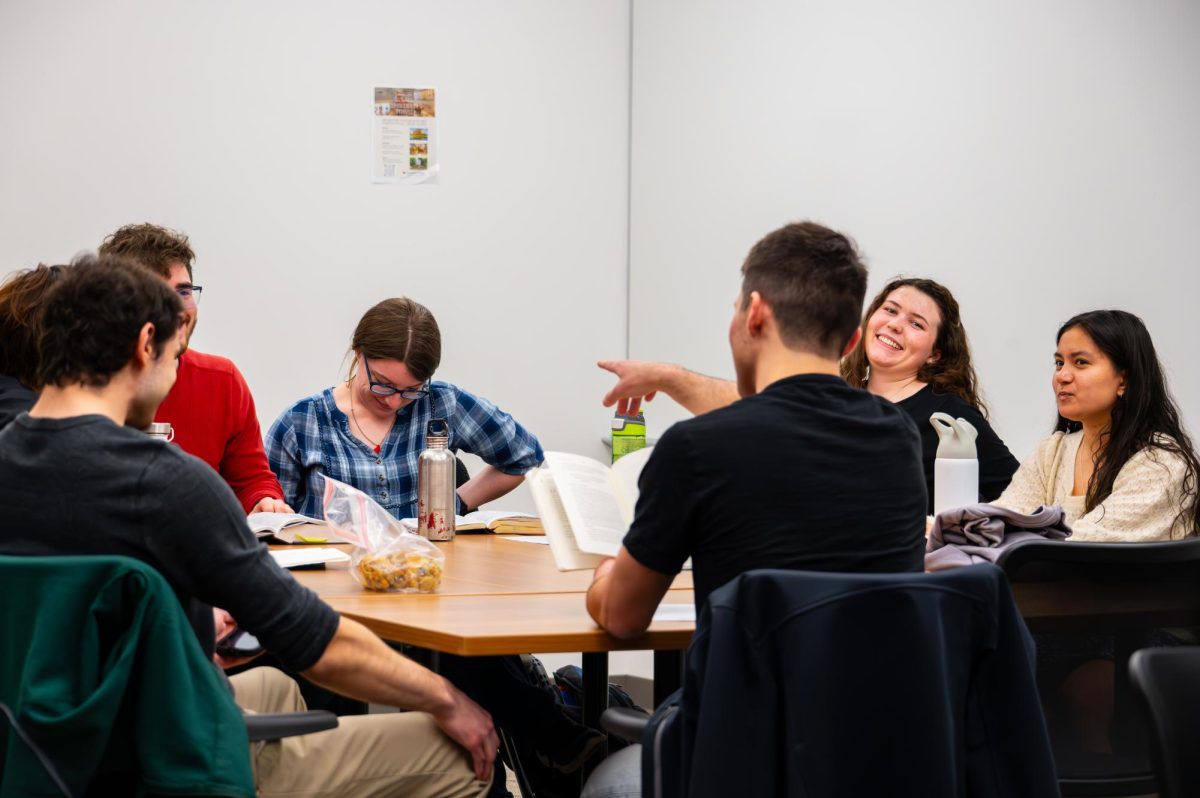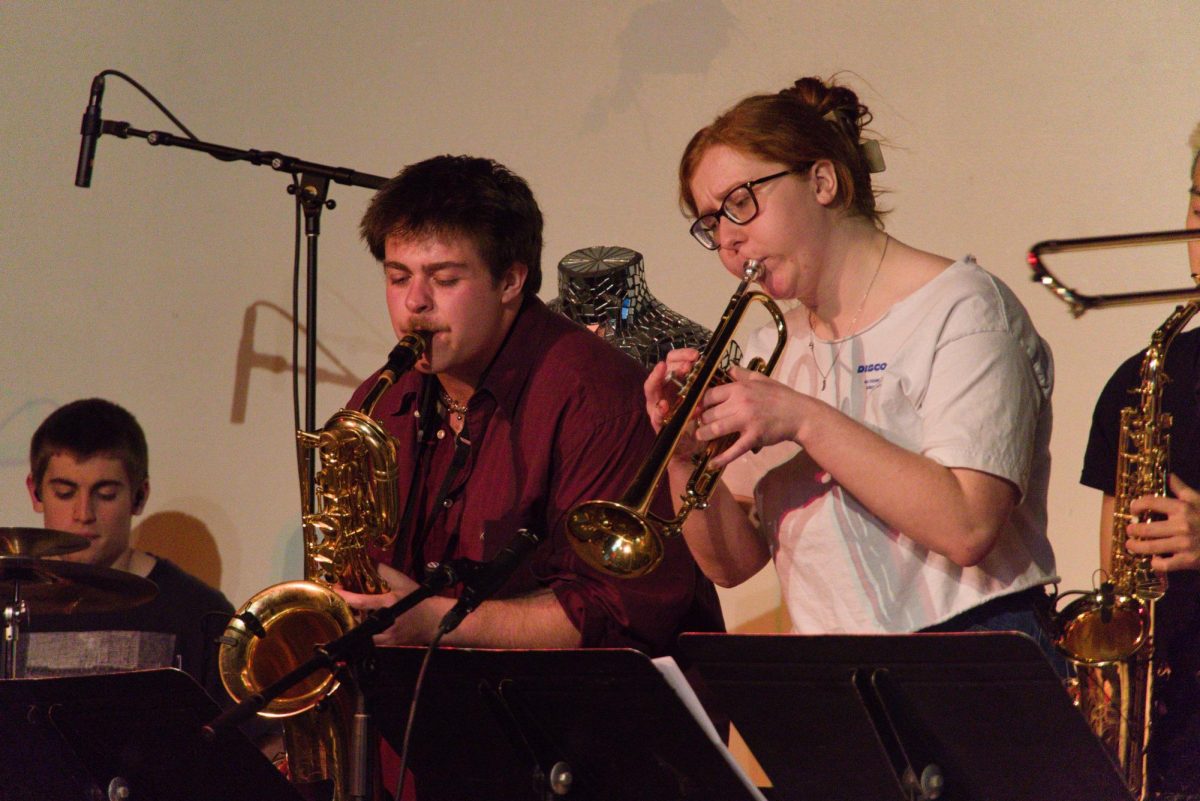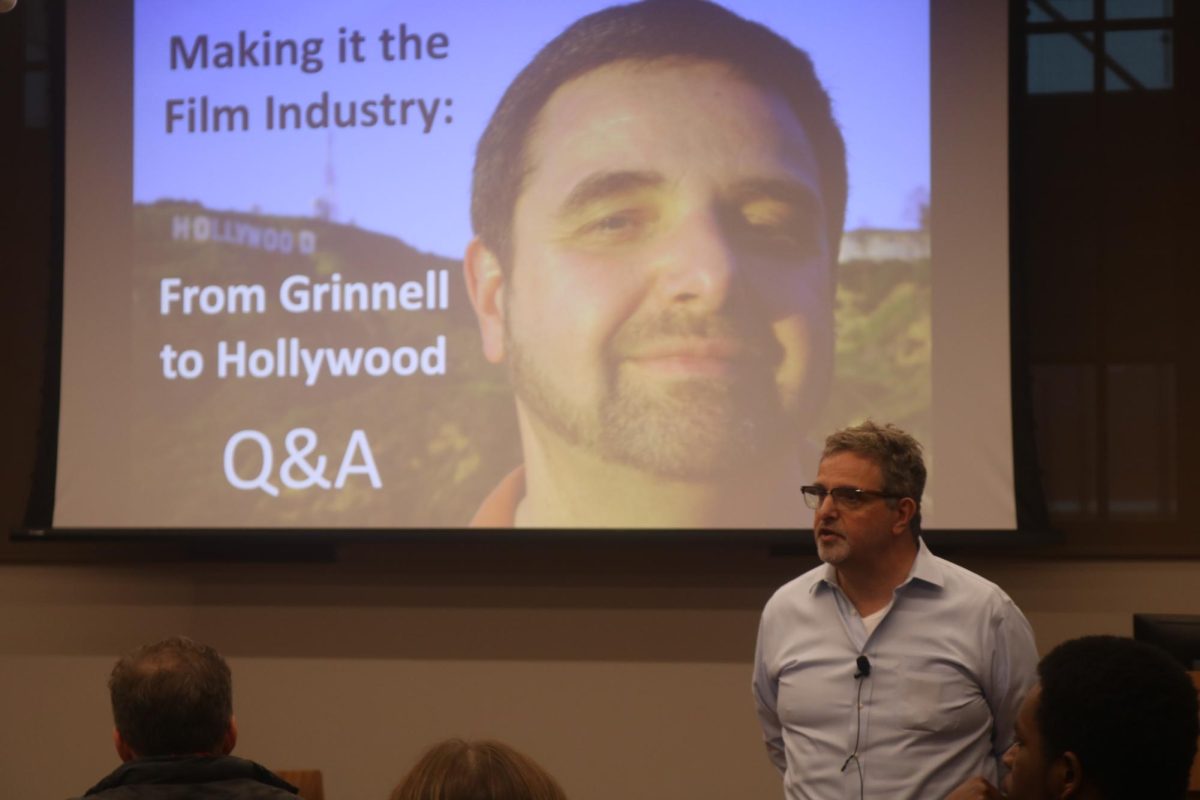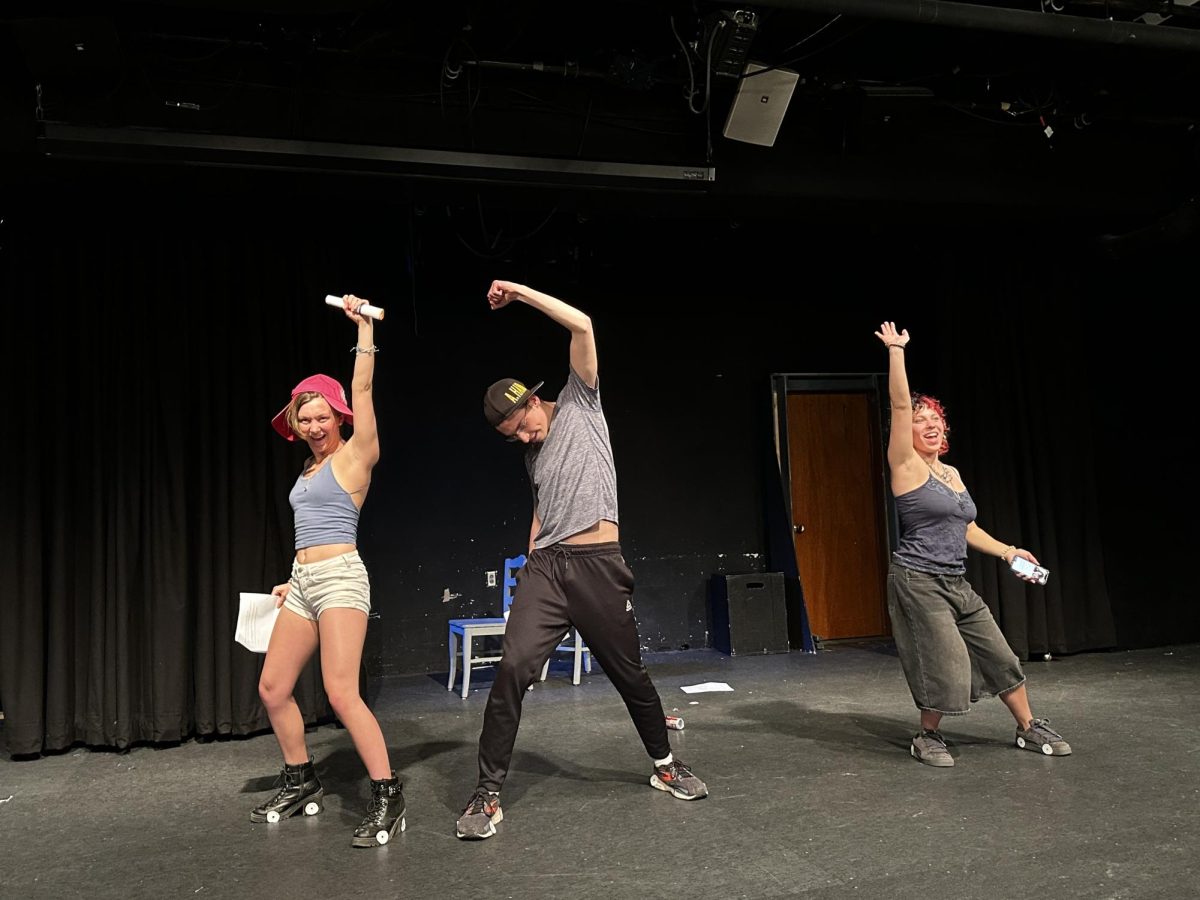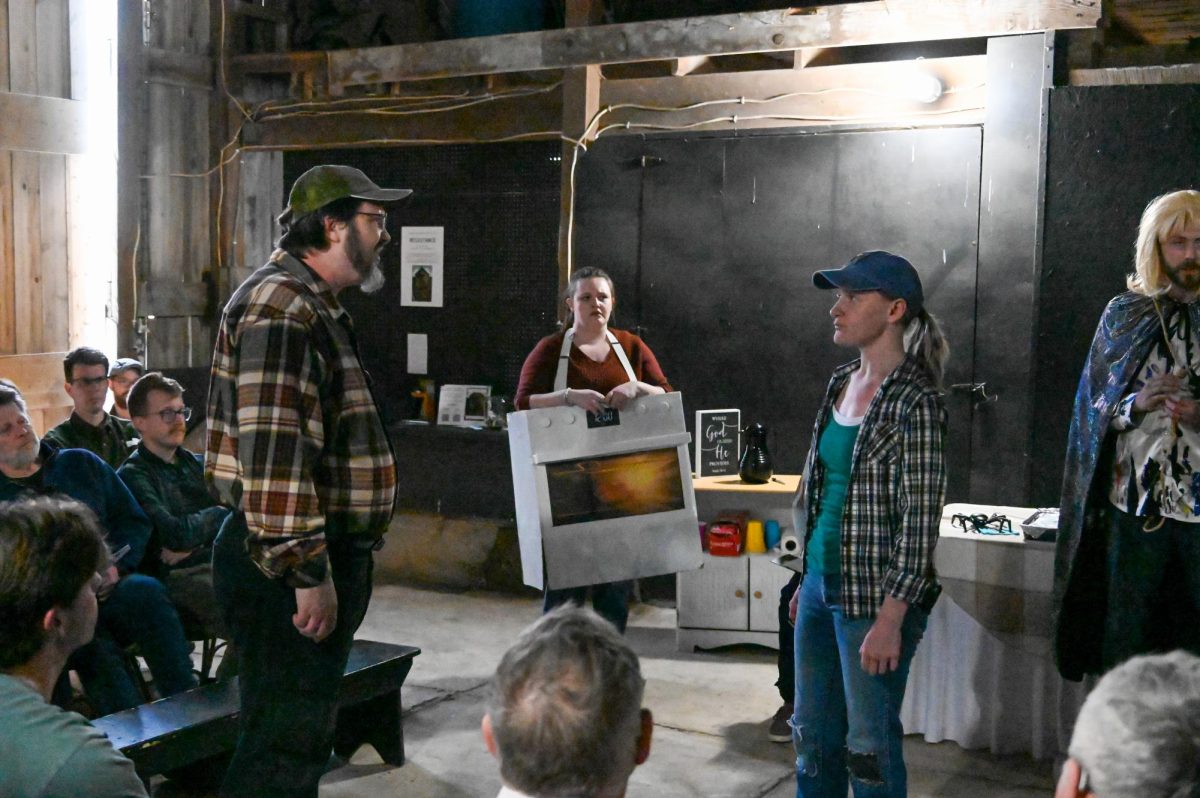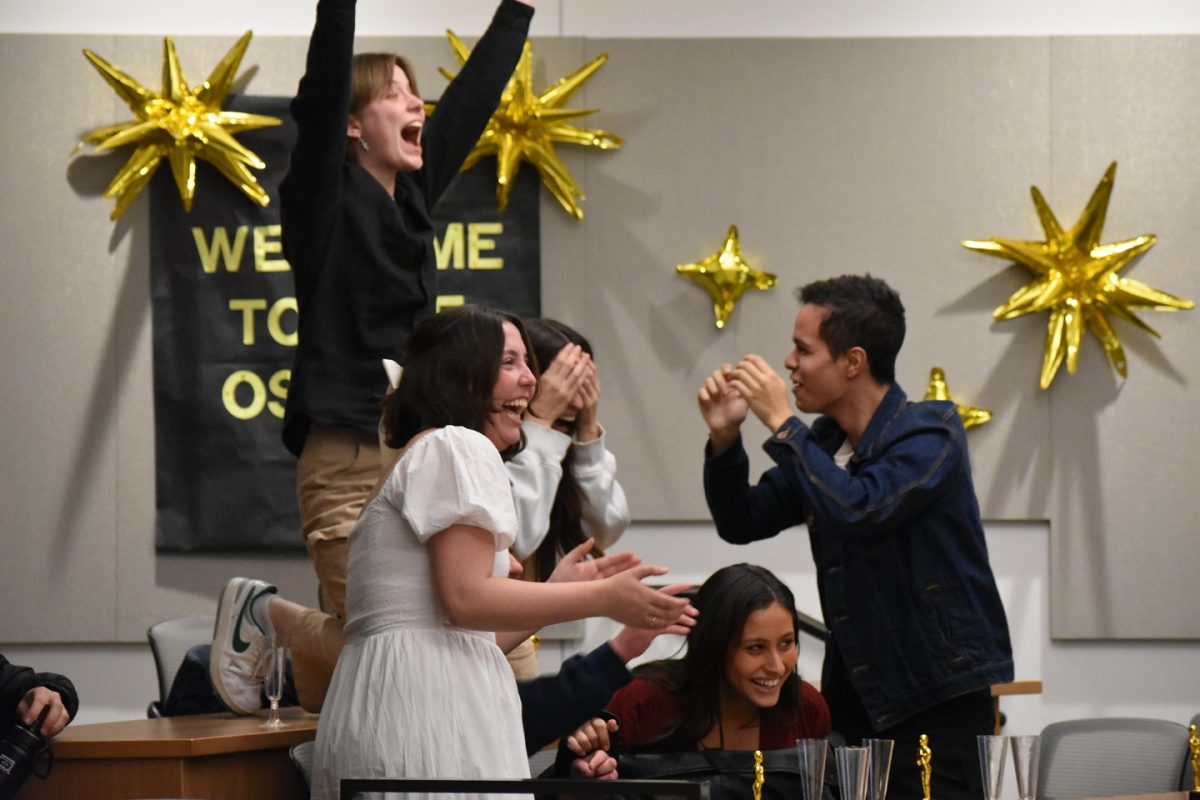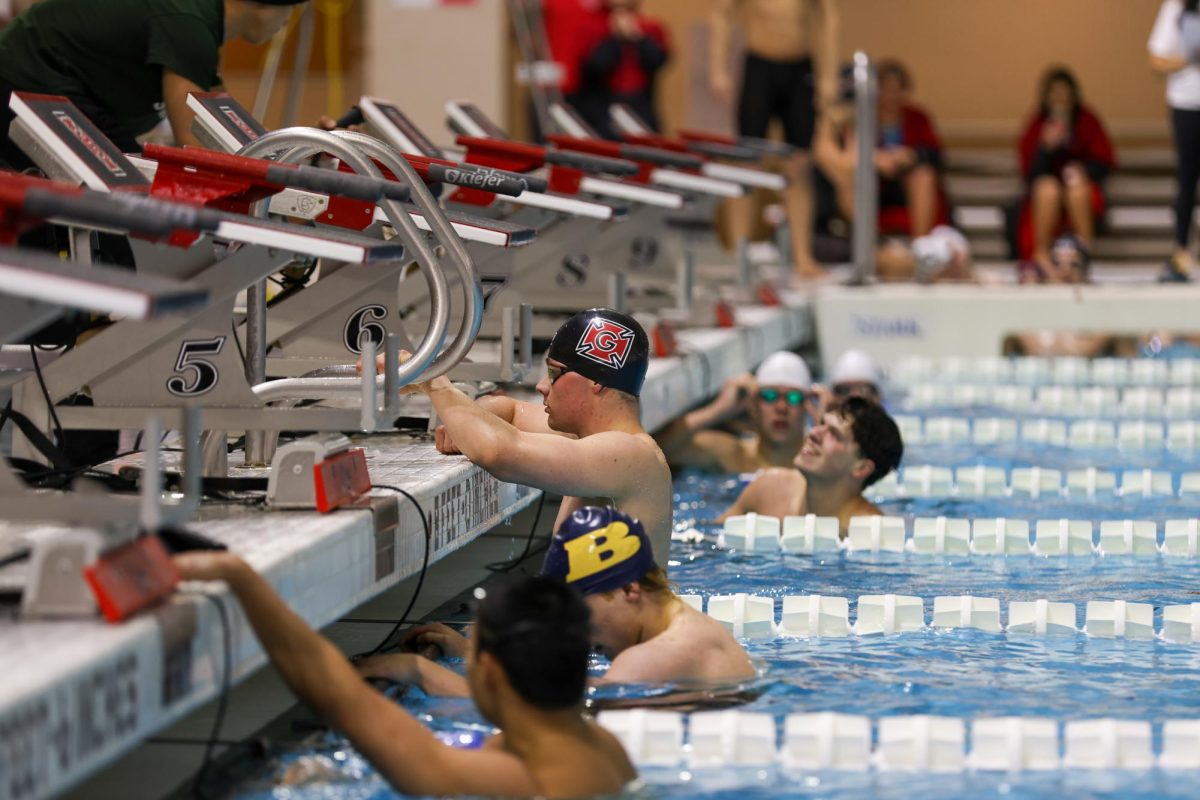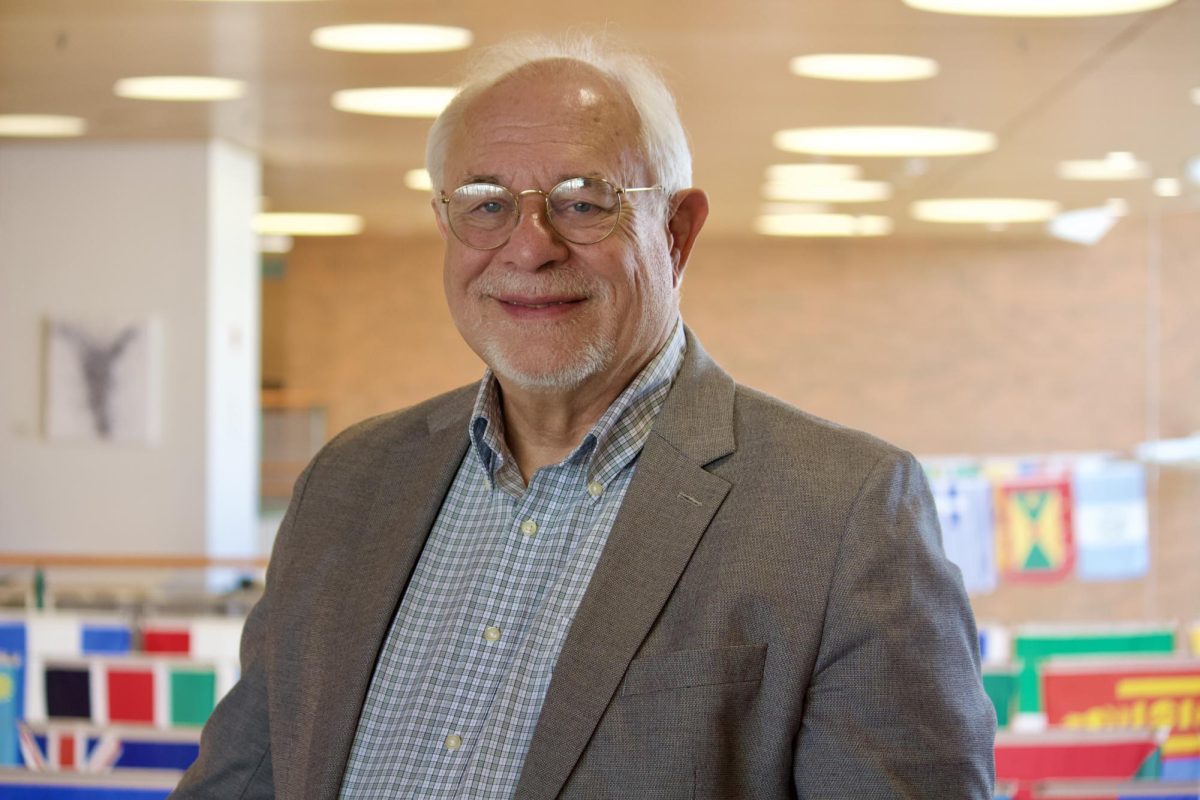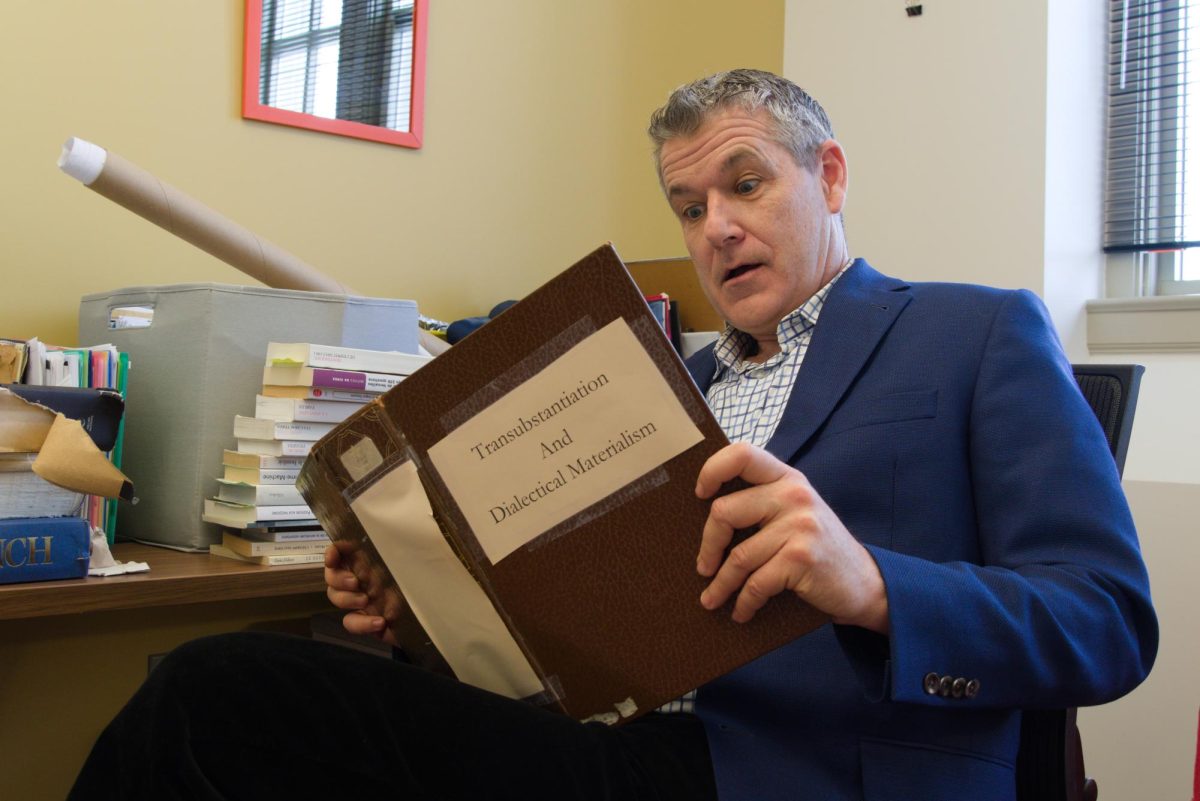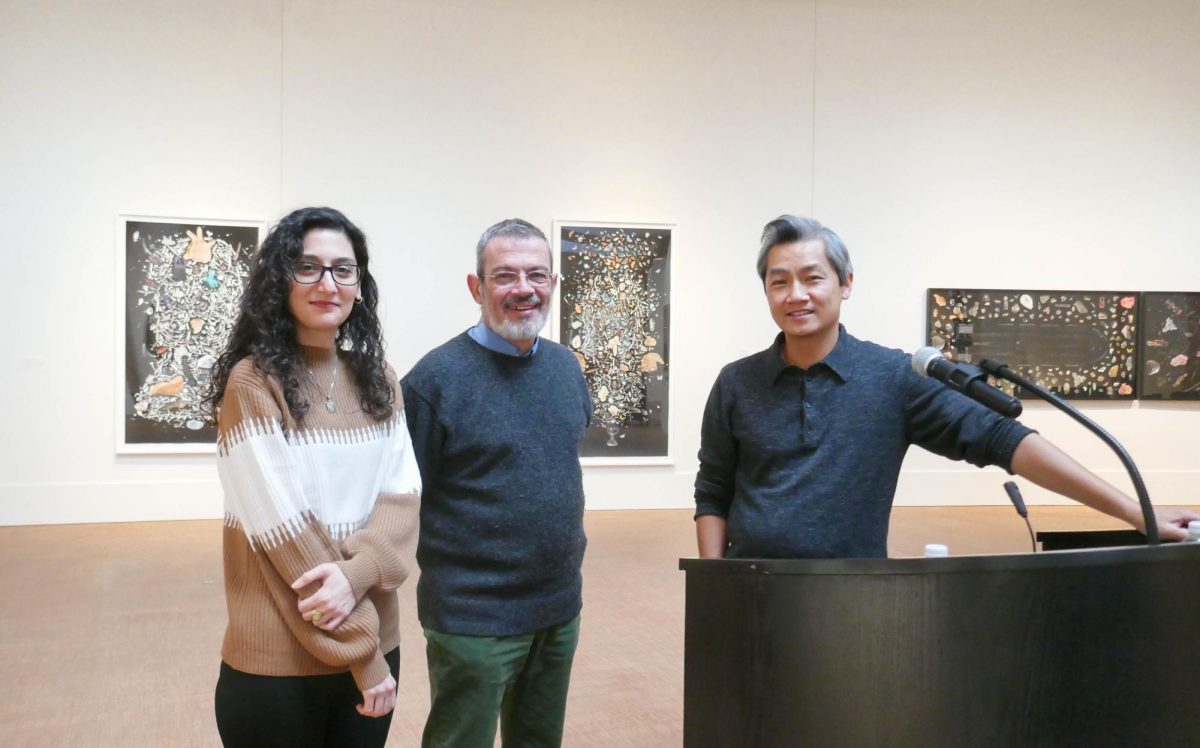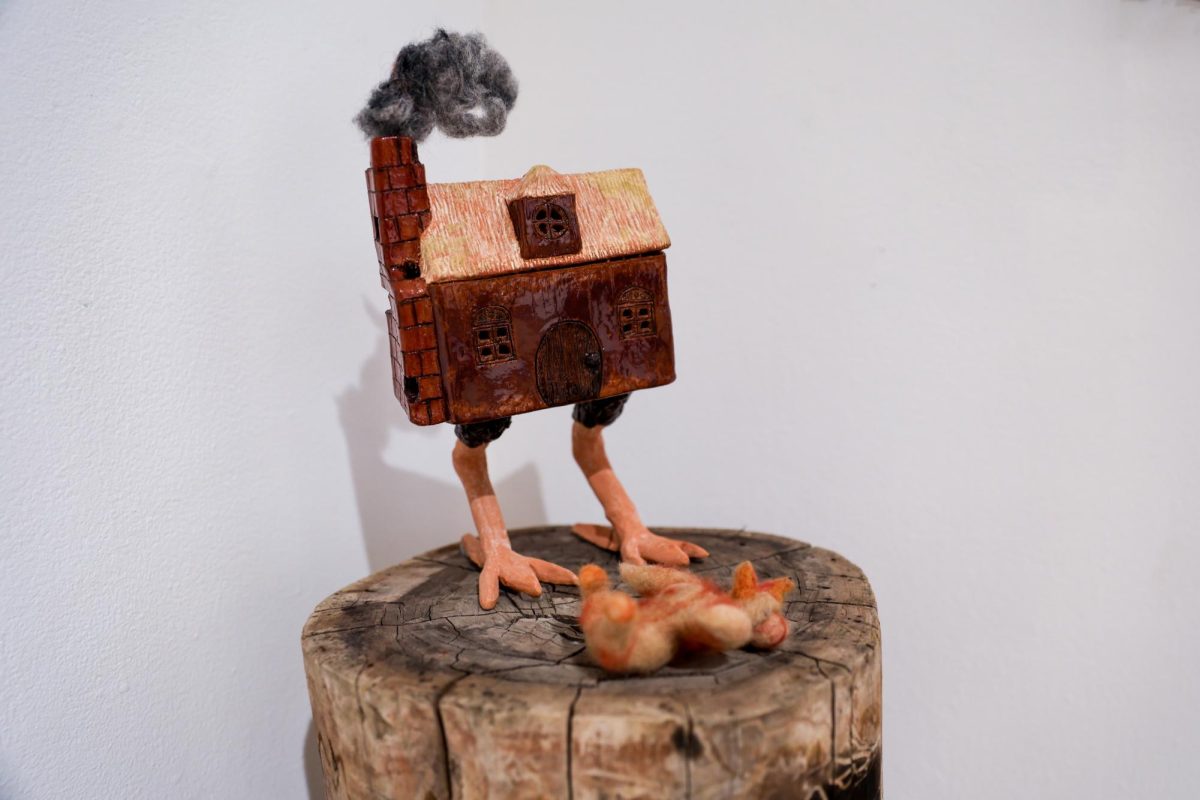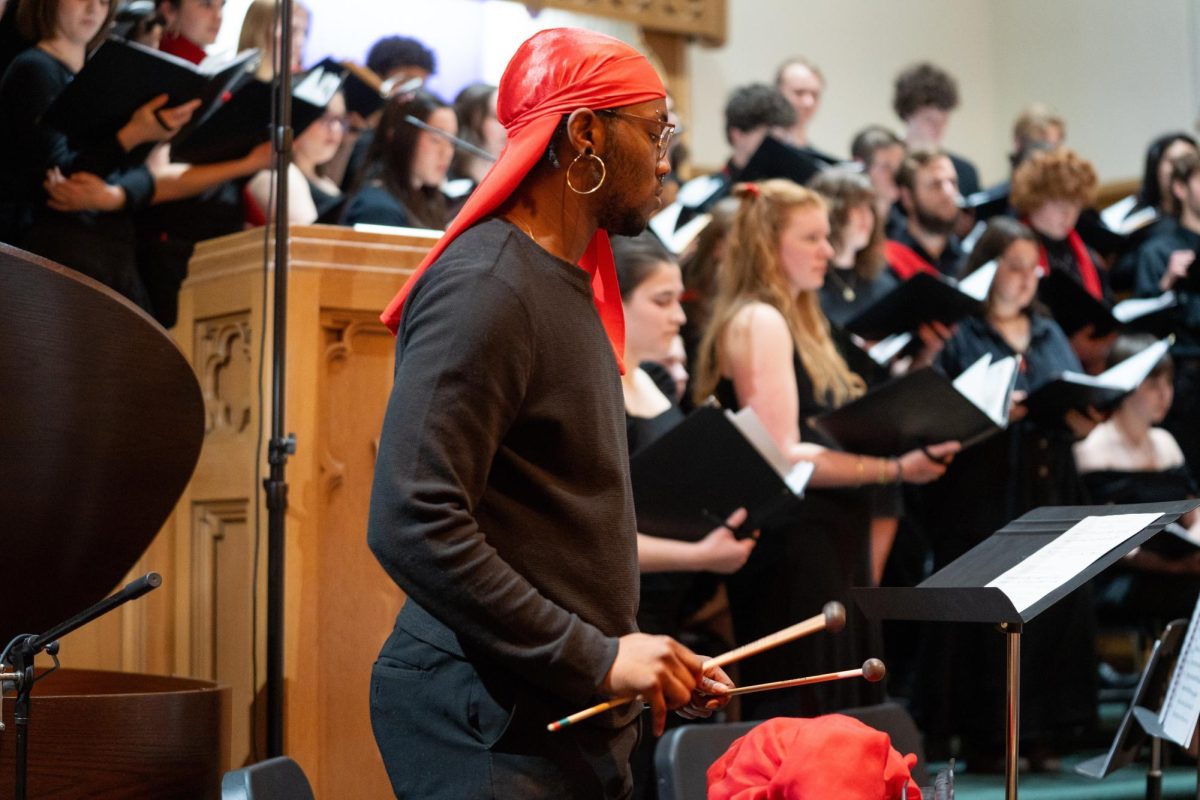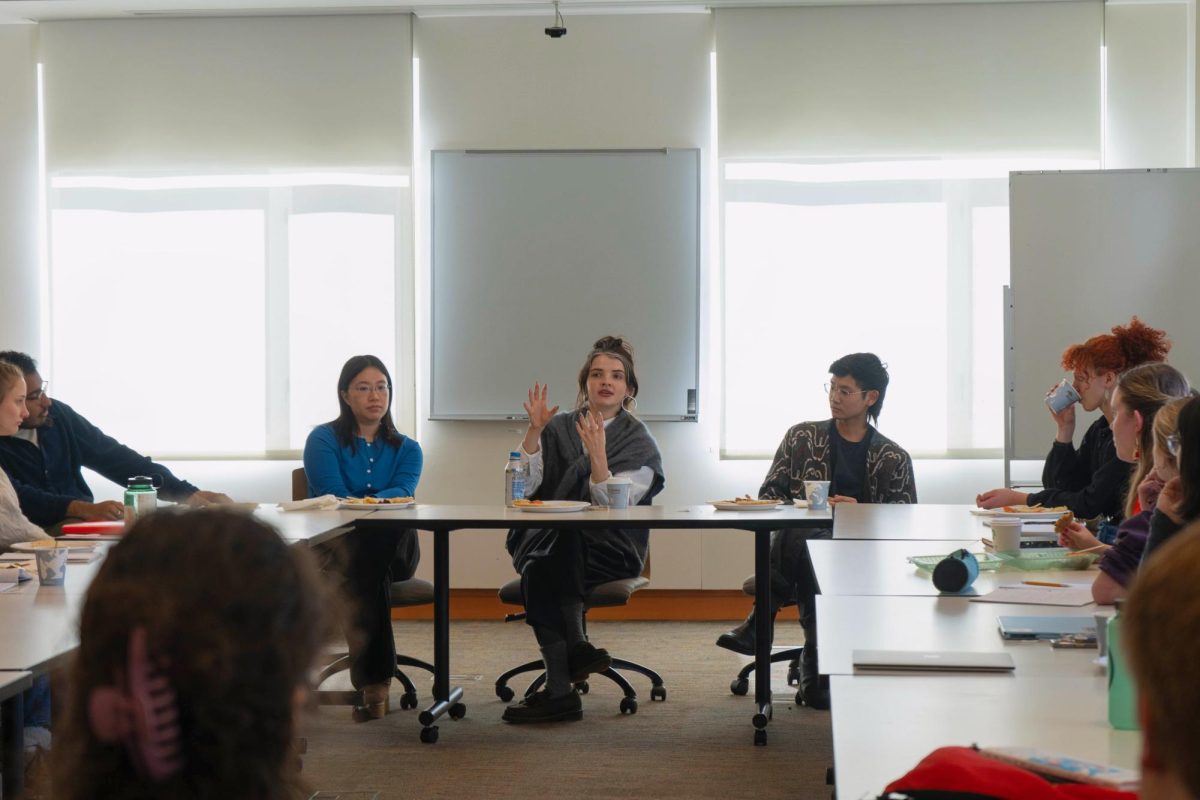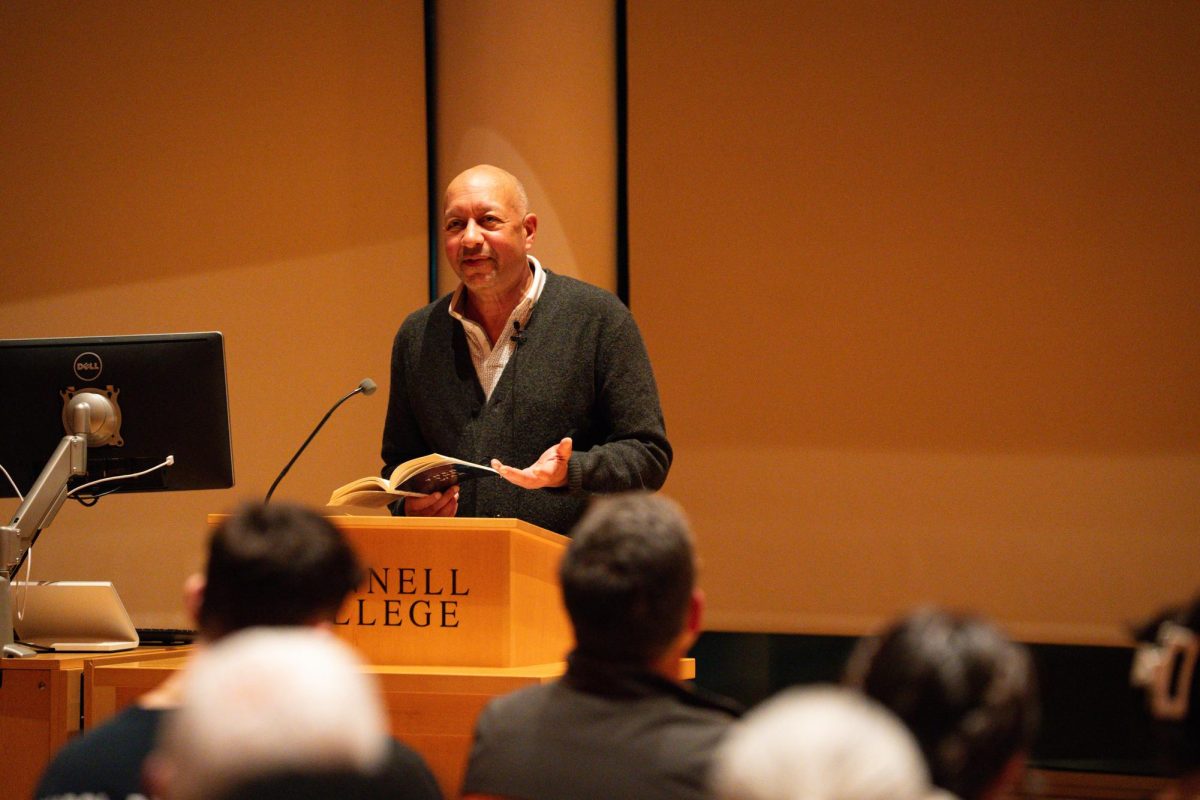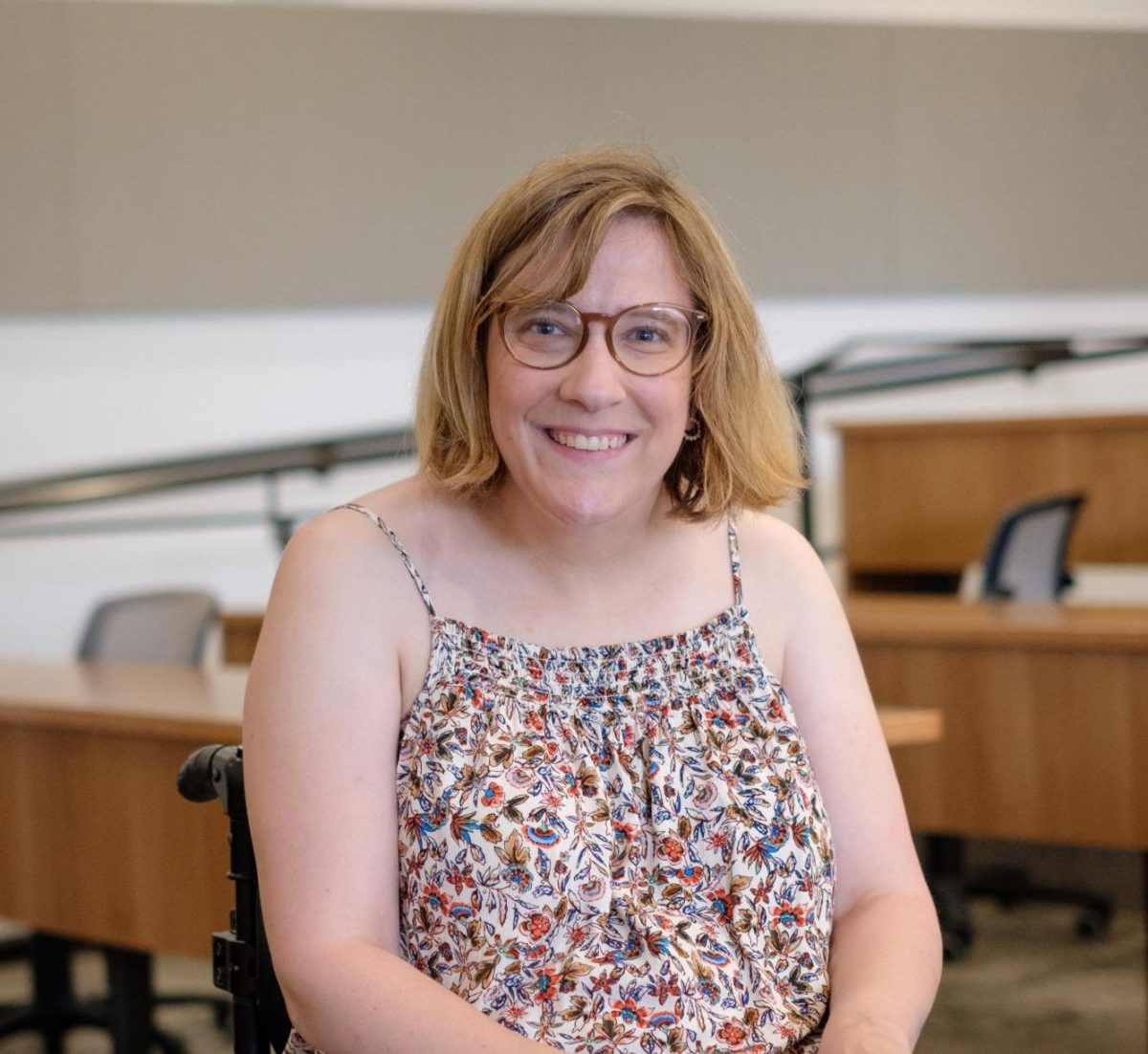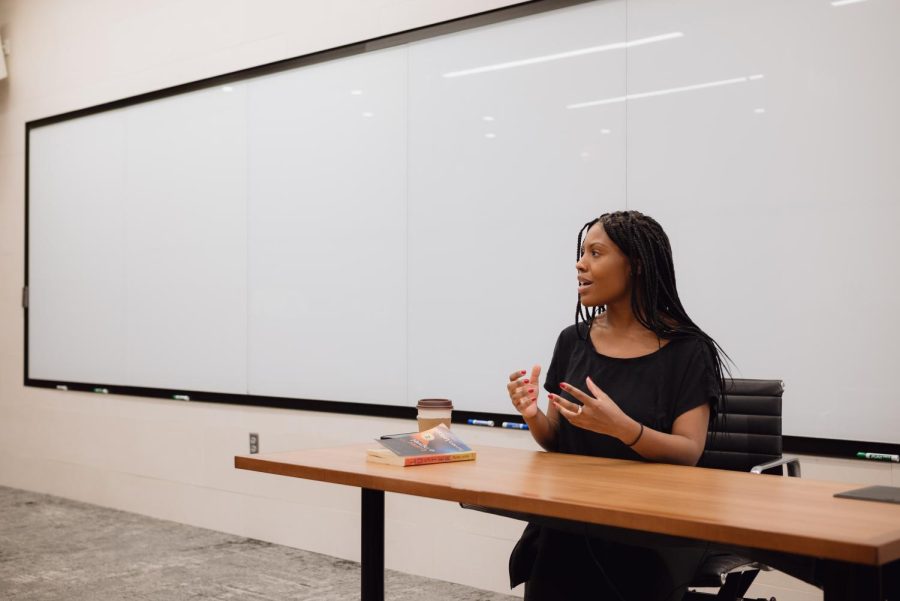Surrounded by prints and sculptures in the Grinnell College Museum of Art, Aron Aji and A.J. Javaheri shared their own work of art — literary translations. They kicked off Writers at Grinnell (W@G)’s spring semester events on Wednesday, Feb. 21. Aji and Javaheri headed a roundtable discussion in the Joe Rosenfield `25 Center (JRC) over lunchtime before reading their works in the museum in the afternoon.
Hai-Dang Phan, the new director of W@G and associate professor of English, has a background in translation himself. He teaches creative writing at the College, which includes both poetry and literary translations.
“We are here to spotlight the art of literary translations,” Phan said in his introduction to the W@G event. “Translation is an art because the act of carrying the literary work from one language to another is anything but mechanical.”
In Phan’s introduction of Aji and Javaheri, he described them as “language artists.”
“They must have a granular feel for the texture of original works and the world’s works if they are to create work that lives and breathes in another language,” he said.
Javaheri was the first to read her translated work. In her career, she has translated over 17 novels from English to Farsi. “I’m really excited and truly honored to be here today,” she said at the reading. She continued that Grinnell’s decision to feature Iranian literature is “very valuable” to her.
Javaheri wrote in an email to The S&B that as a translator, she feels responsible for sharing Iranian culture.
“I always felt a void when I saw the magnificent world of Farsi literature hadn’t made its way into the English language,” Javaheri wrote. “There are too many unheard and untold stories that people can enjoy and learn from.”
“Fallen” by Morteza Barzegar is one of these stories. It is Javaheri’s first ever piece translated from Farsi to English, as well as the author’s first translation into English. Javaheri debuted this work of translation to the public for the first time at the W@G event.
“I chose this piece mainly because it is a profoundly beautiful story and very engaging for a reading session,” Javaheri wrote.
“Fallen” is narrated by a taxi driver driving from an airport in Tehran to the Milad Tower, the tallest tower in Iran. The driver tells a story to a client about a storm during a previous drive, vividly comparing the sound of thunder to bombs and the hail to bullets. The source of this storm was a creature that pierced itself on the Milad building. This “monster,” which the characters in the story named Anahita after the ancient Iranian goddess of water, feverishly attempted to free itself from the tower. This caused more wind, rain and thunder to envelop Tehran — an experience that the taxi driver strikingly remembered and retold.
Following Javaheri’s reading, Aji took center stage. Javaheri described her co-reader and former mentor as her biggest supporter and said, “everything I have accomplished so far has been because of him.”

“It has always been a joy to come to Grinnell,” said Aji.
He read stories from his translation of “Wounded Age and Eastern Tales” by Ferit Edgü which included stories that the author experienced or imagined while teaching in an unfamiliar town in southeastern Turkey. Aji said Edgü was inspired to write about his teaching experiences because they differed from the national and cultural identity he was familiar with.
Aji read short stories that told of a dangerous blizzard, a sprawling village, unbearably long days and birds at daybreak. He also read a longer story about a dream of crossing a river which tells of the harshness of the seasons in Turkey.
After Javaheri and Aji read their stories, the audience asked the translators questions. During this time, Javaheri explained that she left some Farsi words in the English translation to “keep some of the nature of the original story.” She said she also keeps Farsi words which do not have an English equivalent.
Aji expanded on this technique, saying that the original words are chosen to be understood in the context of the translated sentence. When investigated, these words “give the reader a deeper sense of the culture they belong to,” Aji said.
Javaheri and Aji said that translation is truly a collaborative process, which Phan agreed is “important and valuable for our sense of creative community and literary culture.”
Despite this collaboration, translation challenges are inevitable, the guest readers said.
“Whenever something is hard to translate, that’s when we are most excited,” Aji said. “We want the original text to come through as vividly as possible.”
“The main challenge is to make the text accessible to the English reader the same way that the original reader experiences the work,” Javaheri wrote. “The thing that gets me through the challenges is my deep love for literature and translation.”
She said her love for translation ties her to her work in the same way she hopes her work will tie her readers together. “I believe literature is like a universal thread that runs through all the humans interested in reading,” Javaheri wrote.
The spring W@G events will continue on March 7 with Pulitzer Prize-winning poet Carl Phillips as the program’s Distinguished Author.

